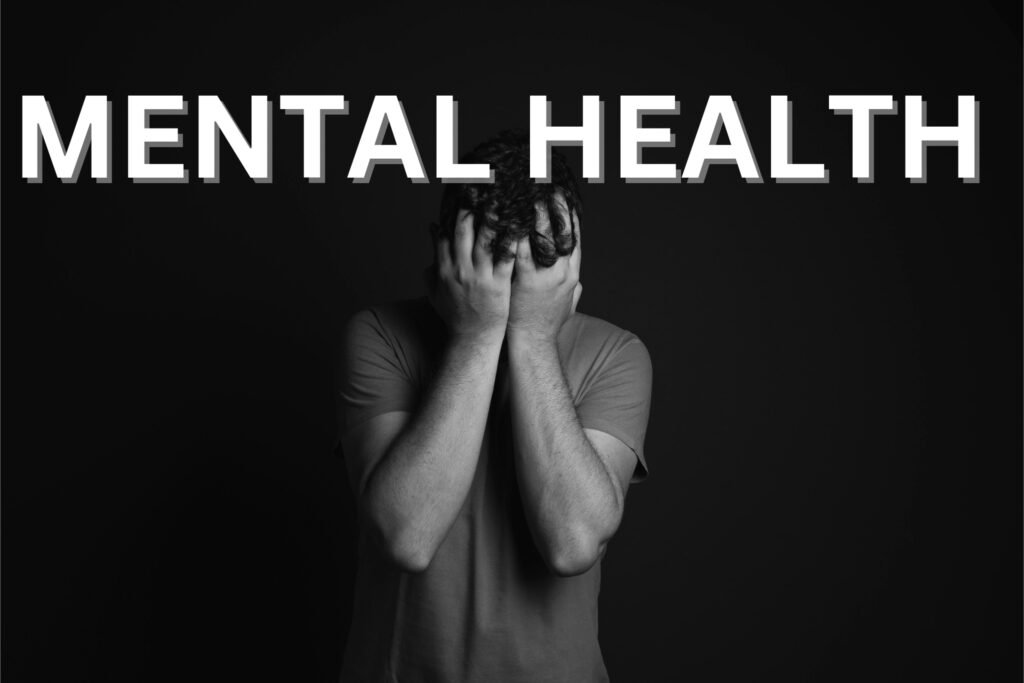
Introduction:
- Did you know that 1 in 8 individuals on the planet suffers from a mental illness? However, despite its widespread use, mental health is still frequently misunderstood.
- Mental health encompasses more than just the lack of mental illness; it also refers to general well-being that affects our thoughts, emotions, and interactions with the outside environment.
- Mental health is essential to our everyday lives, from stress management to forming deep connections.
- This blog will discuss the true meaning of mental health, its significance, typical problems people encounter, and strategies for keeping one’s mind in good condition.
What is Mental Health?

Definition:
- The concept of mental health is broad and includes social, psychological, and emotional well-being. “A state of well-being in which an individual realises their own potential, can cope with normal stresses of life, work productively, and contribute to their community” is how the World Health Organisation (WHO) defines mental health.
- Living a healthy and contented life is more important than only avoiding mental illness.
Important Elements of Mental Health:
1. Emotional well-being: The capacity to effectively control feelings of stress, joy, or melancholy.
2. Psychological well-being: Resilience, mental clarity, and positive self-esteem.
3. Social well-being: Creating and preserving a feeling of community and meaningful relationships.
What Makes Mental Health Important:
- Every element of life is based on mental wellness. This is the reason:
- Relationship : Long-term stress, worry, and depression can cause medical problems such high blood pressure, heart disease, and compromised immunity.
- Productivity and Success: Being mentally well enables us to concentrate, resolve issues, and accomplish both personal and professional objectives.
- Healthy Relationships: Our ability to connect, communicate, and empathise with others is influenced by our mental health.
- Impact on the Community: People who are in good mental health make valuable contributions to society, strengthening and bolstering the community.
Common mental health challenges:
1: Anxiety:Anxiety is more than just a passing concern. It is marked by ongoing dread or terror that gets in the way of day-to-day activity.Symptoms include difficulties sleeping, restlessness, and excessive anxiety.
2. Depression:Depression is more than just sadness. It’s a protracted depressive state that impacts one’s motivation, vitality, and perspective on life in general.Symptoms include weariness, disinterest, and ongoing melancholy.
3. Stress:although stress is a normal reaction to difficulties, prolonged stress can be detrimental to the body and mind.Causes include personal disputes, financial difficulties, or work-related stress.
4. Additional Requirements attention and understanding should also be given to mental health issues such as bipolar disease, OCD, and PTSD (Post-Traumatic Stress disease).
Signs of Mental Well-Being:
- Feeling upbeat and optimistic about life.
- Effectively handling hardship and stress.
- Being successful in both personal and professional endeavours.
- Preserving wholesome and satisfying relationships.
Ways to Look After Your Mental Health:

1. Practices for Self-Care: Take part in regular exercise, such as yoga, swimming, or walking.Aim for 7–8 hours of good sleep each night.Keep your diet well-balanced and high in fruits, vegetables, and meats
2. Relaxation and Mindfulness:Deep breathing and meditation are two techniques that assist focus and relax the mind.
3. Establish Robust Social Networks:Mental resilience can be increased by spending time with loved ones and participating in communities that offer support.
4. Get Expert Assistance :Counsellors and therapists offer helpful resources for overcoming mental health obstacles. Recall that asking for assistance is a show of strength rather than weakness.

The Stigma Around Mental Health:
- The stigma associated with mental health still exists despite increased understanding. People frequently feel embarrassed to talk about their difficulties out of fear of prejudice or condemnation. Many people are discouraged from getting care because of this stigma, which can make their problem worse.
- By encouraging candid discussions, educating ourselves, and helping others around us, we must end this pattern. Everyone lives in a healthier world when mental health is given priority.
Conclusion:
- An essential component of our general well-being is our mental health. It influences our thoughts, emotions, and way of living. It is essential to take care of your mental health; it is not a luxury. Every step towards mental well-being is a step towards a better, healthier life, whether it be through self-care, forming relationships, or getting expert advice.
Give your mental health top priority right now. To raise awareness and spark a discussion, share this blog with your loved ones. Keep in mind that mental health is important because you are important.




Pingback: 7 Myths about MENTAL HEALTH